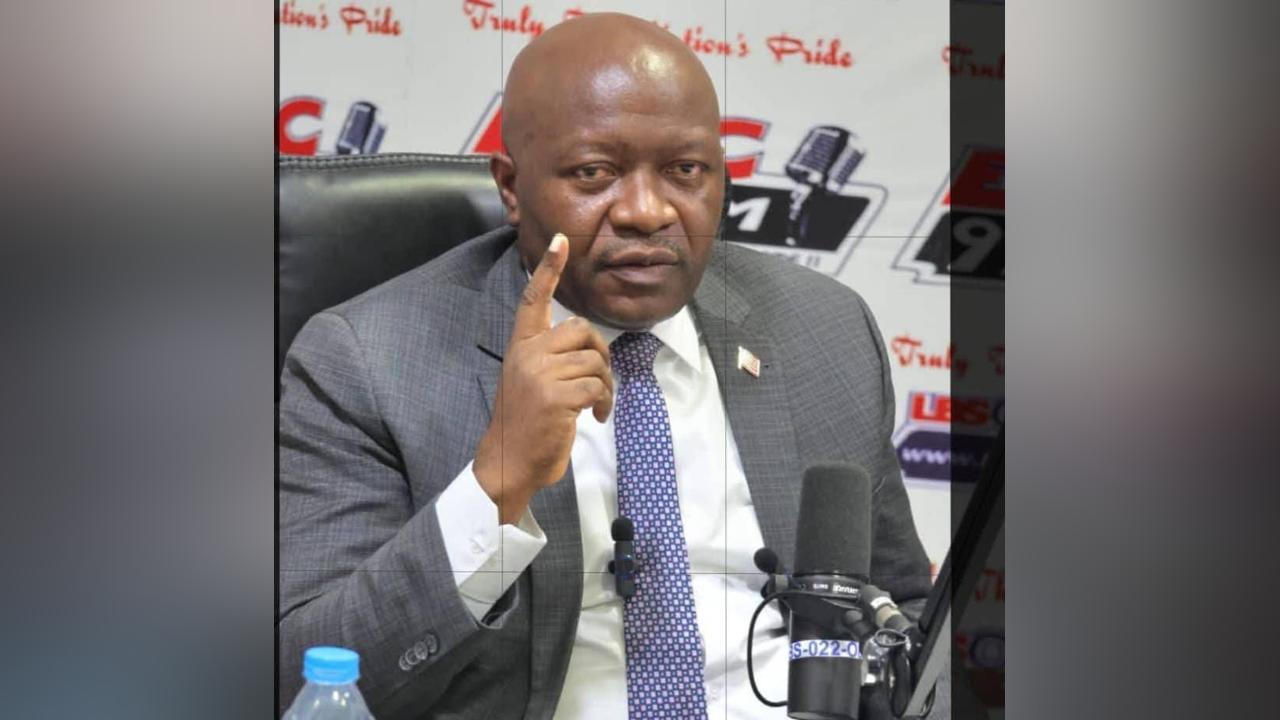Africa-Press – Liberia. Finance and Development Planning Minister, Augustine Kpehe Ngafuan, has defended the Boakai-Koung Administration, insisting that despite criticisms and audit concerns, there is tangible progress in infrastructure, economic stability and public service delivery.
Appearing on ELBC Super Morning Show, Ngafuan dismissed claims that the country is retrogressing and challenged critics to provide evidence.
“Although some would want us to believe that we are retrogressing, contrary to their narrative, we are progressing. There are a lot of indicators,” he said confidently.
His comments followed the release of a General Auditing Commission (GAC) Report that flagged US$2.8 million in payments made without adequate supporting documents, including missing receipts, invoices, and liquidation records.
Responding to the audit, Ngafuan dismissed allegations of fraud, describing the discrepancies as “documentation issues.”
Comparing the 2024 Audit (under UP) with the 2023 Audit (under Coalition for Democratic Change), Ngafuan argued that the current government performed better.
“Besides documentation issues and payments without legislative approval, last year’s report was qualified, meaning it was generally sound with minor exceptions,” he said. “2023’s audit, however, was adverse—the Auditor General found major gaps. The $2.8 million cited this year pales in comparison to $4.27 million flagged in 2023.”
Ngafuan noted that over-expenditures in 2024 amounted to US$2.8 million compared to US$96 million in 2023, which he said showed improvements. He emphasized that audit findings point to administrative errors, not theft, and urged the Liberia Anti-Corruption Commission (LACC) to investigate both years.
“Fraud requires intent and action. Someone could mismanage funds without intending theft. It is the LACC’s role to investigate and clarify these issues,” he said.
Ngafuan insisted most of the flagged transactions predated his tenure and were largely payments to settle arrears for health teams and universities. “The auditor did not allege fraud or misappropriation. Had there been fraud, we would not have received a qualified opinion,” he said.
Of more than US$735 million in transactions, he added, only US$2.8 million were flagged for inadequate documentation. He highlighted reforms underway, including an Electronic Document Management System (EDMS) expected by December 2025 to address record-keeping weaknesses.
“Imagine restarting a system that was practically solved in 2011,” Ngafuan said. “We are now expediting an electronic system to permanently close these gaps.”
The Finance and Development Planning Minister cited road development as a major achievement of the Boakai government. Once impassable areas, he said, are now accessible, cutting down travel time and opening economic opportunities.
“Travel to the southeastern region, and Lofa County has dramatically improved. People are now leaving Fish Town for meetings in Monrovia the same day. Previously, such trips would take days,” he explained, noting that lawmakers themselves have acknowledged the transformation.
According to him, fixing Liberia’s road networks is unlocking the economy by connecting farmers and producers to markets across the country.
Ngafuan further pointed to improved economic indicators, including a reduction in inflation.
He said stable electricity supply is changing the way businesses and households operate.
“Inflation has dropped to just over 7%,” he revealed, adding that public transportation has expanded significantly. “NTA buses are now reaching Voinjama and Harper even at the height of the rainy season.”
“Electricity supply is largely stable. Businesses are no longer spending excessive amounts to keep the lights on. That directly affects business profitability. You see us emphasizing power expansion because it matters,” he explained.
He disclosed that Liberia is one of only 12 countries selected by the World Bank and African Development Bank to develop an energy compact designed to raise electricity access from 33% to 75%. “If that isn’t progress, let them tell you what is progress,” he challenged.
Ngafuan explained visible improvements: night operations have resumed at the Freeport of Monrovia; street lights allow vendors to sell longer into the night; water supply has improved in several communities; fuel and rice prices remain stable; and queues at gas stations are no longer seen.
“People are selling longer hours now because of electricity on the streets. Water supplies have improved. There are no longer queues at petroleum stations. The price of petroleum is stable, and so is the price of rice. Mothers no longer have to scramble at rice warehouses. That is big progress,” he emphasized.
Ngafuan underscored the government’s commitment of ensuring regular salary payments for civil servants.
Ngafuan maintained that Liberia is not sliding backward but steadily advancing under President Boakai-Koung administration.
“Civil servants are largely being paid on time. We’ve normalized salary payments to the point that when it delays beyond the 25th, people start to complain. The citizens are holding us to the standard of excellence we’ve introduced as a government,” he said.
“Travel is easier, inflation is lower, electricity is expanding, public services are improving, and salaries are being paid. That is the Liberia we are building. Liberia is progressing—not retrogressing,” he said.
For More News And Analysis About Liberia Follow Africa-Press






